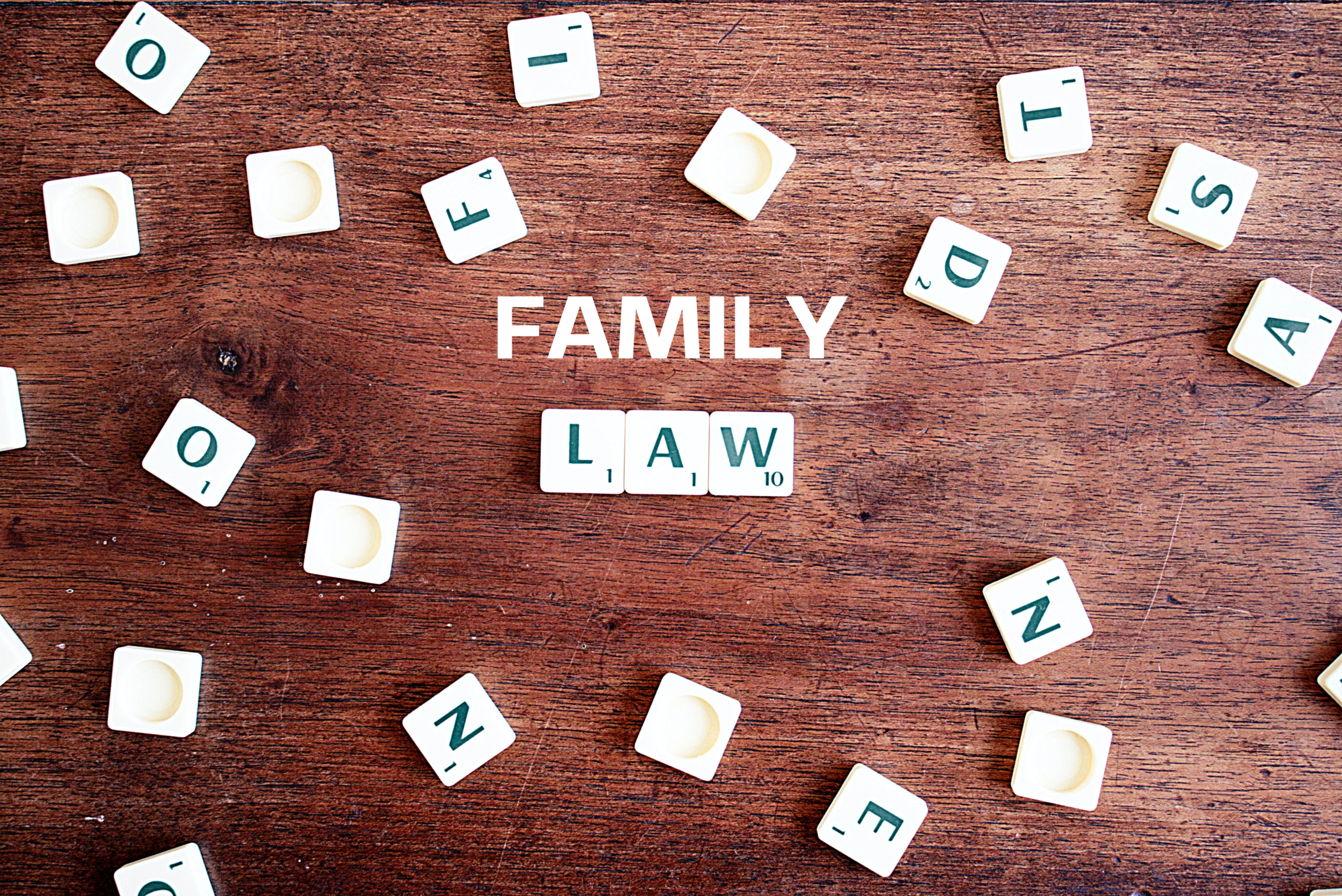
PROPERTY CASES
I have to go to a CAC. Then a CDC or a Conciliation Conference or a Financial Case Assessment. What are they talking about?
It can be difficult working out what to do when your relationship breaks down. Maybe you have had to find a place to rent and suddenly have extra bills buying furniture or paying for extra electricity and utilities.
And then you are faced with the family law system and legal terms that can be quite confusing.
Dependent on the circumstances of your family, the courts may deal with property as a discrete issue or parenting or both together.
What are the STEPS?
Negotiation
First, you just want to settle the financial matters so you can secure a home and have some stability for the future.
As long as there are no urgent matters such as one partner selling assets and withdrawing the funds of sale for their own use, family lawyers have an obligation to negotiate and try to work out a settlement rather than going to court.
You can sort out how the property will be divided between the two of you. You may not get exactly what you want but generally you can come to an agreement that you can live with and that can allow you all to move on.
It is at this stage that you go through all the Pre-Action Procedures where you each provide information as set out in the Family Law Rules.
If you reach agreement this can be formally documented in Consent Orders, which are made by a Judicial Officer in chambers without a Court appearance so that the parties don’t have to go to Court.
Sometimes, one partner may be intransigent and the negotiation process will fail or be delayed. This is when you will have to make an application to the Court.
Even after you have made an application to start proceedings, at any stage, you can discontinue proceedings if you can come to an agreement with your ex-partner. Sometimes, going to court can help to focus on what is the stumbling block to settlement. Once that is sorted, you or your legal representative can settle Consent Orders to finalise matters.
Filing an Application in a Case
If you and your former partner cannot agree then you may have to go to Court.
This means that you will meet with your lawyers and prepare documents, which set out your financial position, your assets, and contribution to the assets and an overview of how you are presenting your case.
The Application and supporting documents are filed at Court.
Then the Court gives you a date for your first Court appearance.
What Documents have to be filed?
Initiating Application seeking financial orders (or financial and parenting orders dependent on your circumstances);
Financial Statement;
Affidavits: If you are seeking interim orders at the same time as final orders.
Interim orders are orders that are temporary until the matter can get to a Final Hearing which will settle your matter on a final basis.
An affidavit is a sworn written statement setting out your evidence in support of your application.
Next Step
Once your Application has been filed at Court, the Court will set a date for the Case Assessment Conference.
Your also have to serve all your documents on the other party, your ex-partner. As you are the Applicant, he or she will be referred to as the Respondent.
Response from the Respondent
On receipt of your application, the Respondent files and serves a response to the documents you as Applicant have filed. In the Family Court Property Application this needs to be done at least 7 days before the Case Assessment Conference. The Family Law Rules 2004 require “full and frank disclosure” of all financial matters between the parties and there are very strict penalties for evading this duty.
Financial documents required
Rule 12.02 of the Family Law Rules provides that parties must exchange copies of the following documents at least two days before the first court date:
the party’s 3 most recent taxation returns and assessments;
any superannuation documents for each superannuation interest of the party;
for a corporation (business), trust or partnership, financial statements, including balance sheets, profit and loss accounts, depreciation schedules and tax returns for the last three last financial years;
for the party or a corporation (business), trust or partnership any Business Activity Statements for the 12 months;
for any corporation, its most recent annual return including directors and shareholders and the constitution;
the trust deed/s;
partnership agreement;
a market appraisal of any item of property in which a party has an interest.
Your First Day at Court
Case Assessment Conference; and
Procedural Hearing.
During COVID-19, this may be on a telephone link-up, zoom or team player. The Court will notify you or your legal representative of the protocol that will be in place for your case.
As restrictions ease, urgent matters are returning to face-to-face court.
Case Assessment Conference
A registrar (a court lawyer) of the Family Court will conduct the Case Assessment Conference (CAC). The registrar assists the parties in reaching an agreement which would then mean that you would not have to attend Court again. It usually lasts for about an hour.
If agreement cannot be reached then the registrar will narrow the issues of the case, recommend any other services that may be appropriate such as family dispute resolution and explain the Court process to the parties.
If appropriate, the Registrar may offer the parties a Conciliation Conference to further assist in working out the financial issues of the case.
The Registrar will order the parties to complete a joint balance sheet and a Financial Questionnaire setting out the parties’ respective view of the assets and liabilities of the property pool. Information and example of the Balance Sheet can be found at:
Alternatively, the Registrar may set the matter before a Judge to proceed to a trial.
Whatever negotiations take place at the Case Assessment Conference remain privileged which means they cannot be restated in an Affidavit or at Court.
There are exceptions to privilege such as if any party is under threat of violence or other abuse.
Procedural Hearing
The Procedural or Directions Hearing will normally follow on the same day as the Case Assessment Conference.
If you were able to come to an agreement at the CAC these can be made as legally binding Orders by the Court. Otherwise the Court will progress the case to the next step.
The Procedural Hearing is not subject to privilege and anything said at the Hearing can be used in Court.
The over-riding purpose of the Procedural Hearing is to allow the Court to direct the case and facilitate its progress through the system by setting up a timetable for when the parties need to complete documents or attend alternative dispute resolution.
There may be several mentions and/or directions hearings, depending on how complex your case is, or whether the other party has complied with earlier directions or to resolve any problems that may arise that cause the parties difficulties in complying. Parties do not have to attend the mentions.
Next Step: The Conciliation Conference
When and only when all the financial documents have been disclosed, the Court will list the matter for a Conciliation Conference. This will usually occur about 3 months after the Case Assessment Conference if all duty of disclosure documents have been provided.
The Registrar will work with the parties and their lawyers to negotiate a settlement and obviate the necessity of Court. The Registrar will discuss the issues with you and your lawyer and with the Respondent and his or her lawyer. The Registrar then makes an assessment of the probable division of the property pool that would be made by the Court and allows the parties to further negotiate to a workable settlement.
Even if a final settlement has not been reached, the Registrar’s assessment is extremely useful when preparing your case for the Final Hearing.
Next Step – Allocation of First Date before Judge
If the Conciliation Conference does not produce a settlement the matter will be put in the pool to await allocation of a first date before a judge. Reaching a Final Hearing can take up to 2 or 3 years.
The first step in this process is to get a first date before a judge. You can wait up to 12 months in the pool.
Your first day before a judge in normal circumstances will be in a formal court.
Next Step – Final Hearing
This is when you and your witnesses and the Respondent and witnesses will finally appear before the Court and give their evidence in the witness box.
In preparation the parties and their witnesses will have sworn and filed affidavits of their evidence which will be tested in Court by the barrister representing each party.
The Judge will hear all the evidence including from any expert if needed such as for the valuation of a company. The Judge will then “reserve” judgment which will be published as a written document. This will remain confidential. Publishing the written decision can take 3 to 6 months.
The Judge will make Orders that are final and binding on the parties to end the financial relationship between them.
Your Options
You can go to the Family Court website and download the brochures on financial matters such as Pre-Action Procedures and the Balance Sheet.
However, where your financial future is concerned it is important to seek legal advice to help you navigate the Court Process.
We will be happy to advise you of your best options in resolving financial matters to assist in negotiating rather than going to Court wherever possible.
Each case is different and sometimes a former partner will not be willing to negotiate. It is important to understand your rights and entitlements as well as how to proceed to financial property orders.
Contact us at David H Cohen and co for your legal matters.
Note: This article is provided for information purposes only and is not legal advice.
